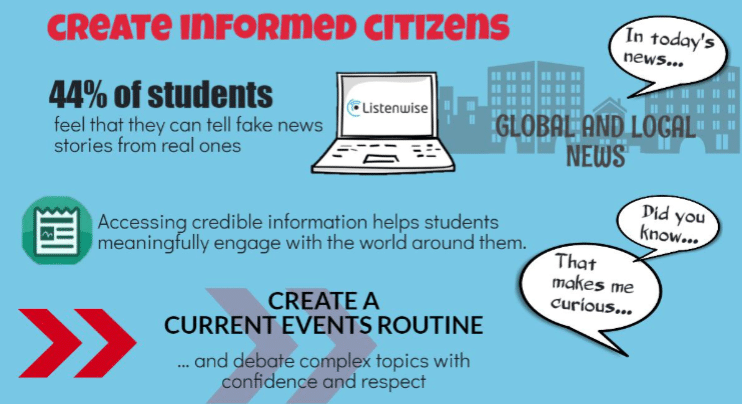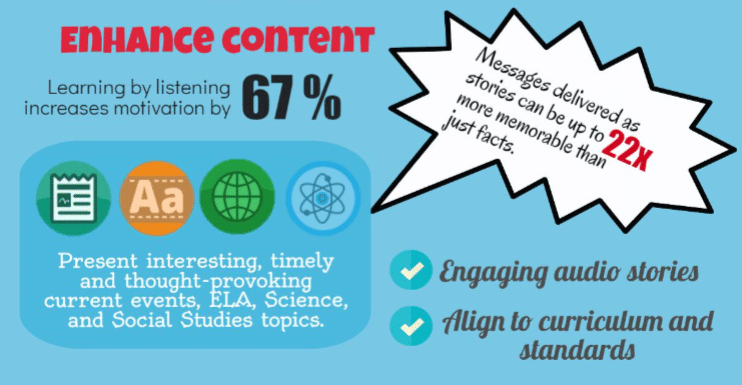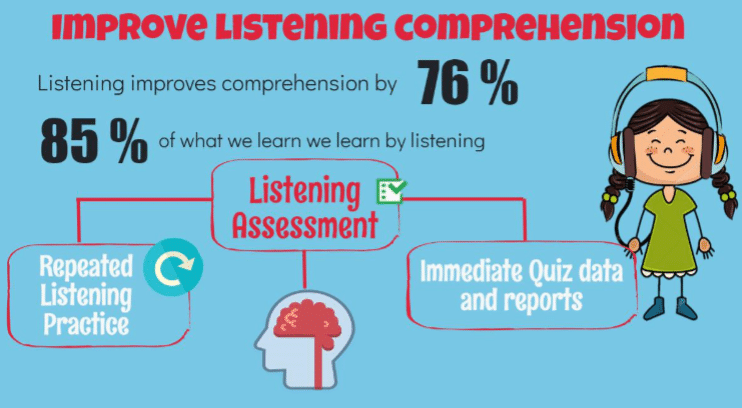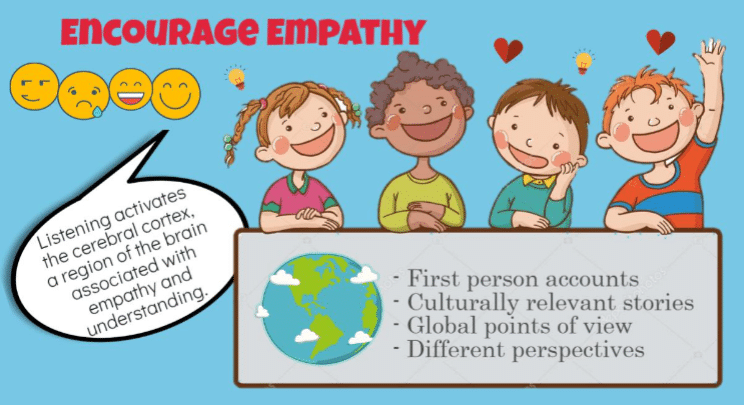Last Updated on July 30, 2021
Listenwise is a flexible resource and can be used to meet many different goals for your students. Podcast lessons enhance student engagement, content knowledge, and build on skills such as media literacy and empathy. We describe ways to approach this with a few activities in this blog.
Our previous blog highlighted how to enhance language and literacy skills using Listenwise. If you use Listenwise audio stories in other ways with your students, please share with us!

Podcasts Create Informed Citizens
As a democracy, we need to develop students who are conscientious, critical thinkers, open minded, and ready for the future. Help students know where to go to be informed and understand global events, the economy, the environment, and politics so they can make the best decisions for themselves.
Use Listenwise podcasts to teach media literacy: Implement a media literacy curriculum and give students tools and information to develop their own criteria for determining which media stories to trust. Listenwise has a partnership with NPR, who has a trusted and venerable history of journalistic integrity and provides a quality source for information.
Use Listenwise podcasts to understand current events: Carve out time to listen to news at the beginning of class—daily or weekly—to connect students to what is happening in the world around them. Listen to the daily news story posted on Listenwise, and have students listen to all of the stories in a week and then choose one to write about, summarize, or discuss during class.

Podcasts Enhance Content
The lessons in Listenwise align to curriculum topics in ELA, SS, Sci and they can spark interest, engage, motivate, and create a memorable link to the content.
Use Listenwise podcasts to connect students to content: Use audio to connect historical events to current events. Help students see that how events are perceived often leads to how people respond to them. Use stories that will engage students in the content and use Listenwise resources to gain background information on a topic as well as extend learning beyond the audio.
Use Listenwise podcasts to engage and motivate: Listen at the beginning of class, the beginning of the week, or before jumping into instruction on new concepts or standards. This can give you a hook to develop student background on the topic, activate prior knowledge, and address any learning gaps.
Use Listenwise podcasts to promote student-directed learning: Students can search or browse the all lessons and current events, personalize their learning and make choices about what to listen to.
Use Listenwise podcasts to develop higher-order thinking skills: State standards require that students be able understand diverse points of view, analyze reasoning, summarize points of agreement and disagreement, and defend their claims with evidence. Use these audio stories as instructional resources to develop these thinking skills.

Podcasts Support Listening Comprehension
Many research studies have shown that students who are better listeners are also better learners. In one study, students were given a listening test when they started college. Within a year, almost 70% of the students who had proficient listening skills were in Honors. Help students develop these important skills by listening to these curated stories.
Use Listenwise podcasts to practice for state assessments: Listenwise provides opportunities for instruction and practice for statewide listening assessments that involve short, non-fiction audio clips. Use audio stories to build stamina and the ability to focus so students are able to best understand while listening. Also, these stories are short and provide opportunities to listen to a story multiple times to practice their listening comprehension.
Use Listenwise podcasts to gain data on listening skills: Listenwise quizzes provide a quick way to gain data about how well your students are listening. Use quizzes and get auto-scored performance data immediately by class and by student and identify areas of need in order to provide additional instruction. Now that components of some state tests have added assessments for listening comprehension, your students may benefit from practice taking listening assessments.

Podcasts Encourage Empathy Skill Building
Most teachers strive to develop kind and empathetic students. Integrating content learning with social and emotional learning helps students understand different points of view and understand the similarities and differences between cultures. Listening to actual voices, emotion, and sounds in the environment helps students put themselves in a different place, experience what is happening, and be where the speaker is.
Use Listenwise podcasts to teach point of view and perspective: Choose stories with first-person accounts of events or personal reflections and have students listen from a different perspective while they put themselves in someone else’s shoes, feel the experience, engage their senses, and empathize with the speakers.
